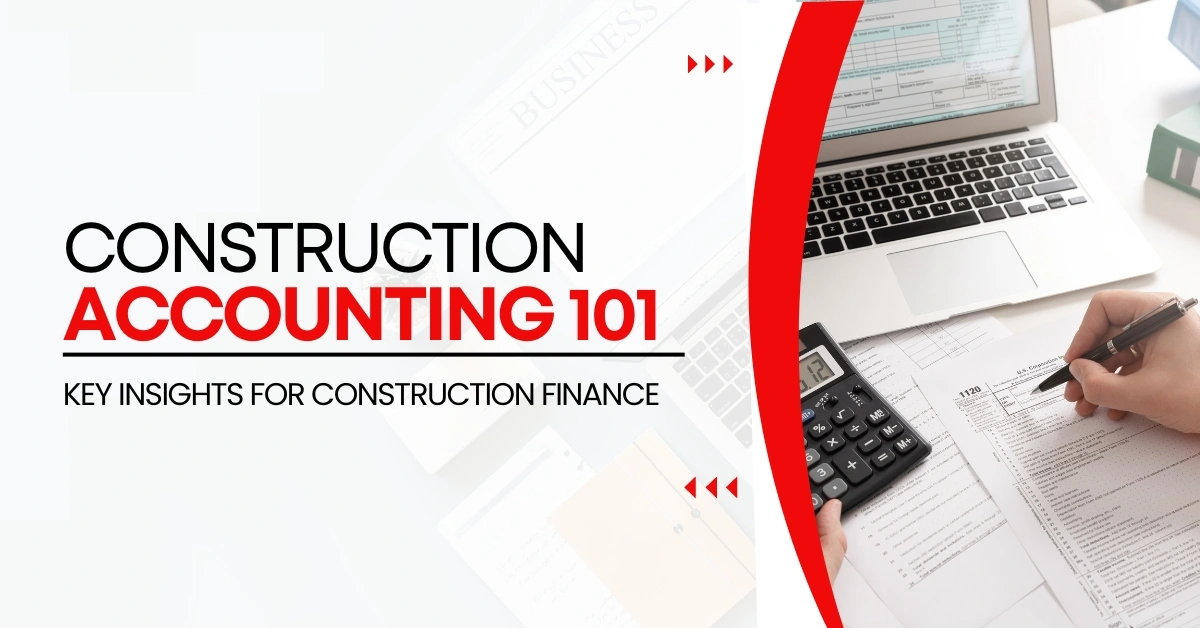Construction Accounting: How to Maintain Accurate Records and Improve Cash Flow
Construction Accounting: How to Maintain Accurate Records and Improve Cash Flow
Blog Article
Trick Services Offered in Construction Audit to Enhance Financial Oversight
In the realm of building accounting, essential services such as project cost evaluation, budget plan monitoring, and cash flow analysis play a critical duty in enhancing economic oversight. These solutions not just improve the budgeting process but additionally supply necessary insights into expense patterns and task earnings. By closely monitoring monetary metrics, stakeholders can make informed decisions that straighten with project objectives. Nevertheless, the complexity of these solutions typically questions concerning their implementation and impact on general project success. Comprehending these nuances can considerably affect the performance of economic oversight in building jobs.
Task Price Estimate
Efficient task cost estimation is a crucial component of effective construction accountancy services, as it directly affects budgeting and monetary planning (construction accounting). Exact expense estimates provide an extensive overview of the economic needs for a construction task, allowing stakeholders to make informed decisions pertaining to source allotment and job expediency
A detailed expense evaluation process encompasses different aspects, including labor, materials, tools, overhead, and contingencies. By examining historical data and existing market trends, construction accountants can establish reasonable price quotes that reflect real task expenses. This logical method not just help in safeguarding financing but likewise enhances openness and accountability amongst all parties included.
Additionally, accurate cost estimation acts as a structure for monitoring and managing costs throughout the job's lifecycle. By establishing a clear baseline, building and construction accounting professionals can determine discrepancies in between estimated and real costs, enabling timely adjustments and interventions.
Ultimately, effective task price estimate not only assists in smoother project execution however additionally strengthens the total financial health of construction organizations, guaranteeing they continue to be competitive in a progressively dynamic sector. This calculated technique underscores the value of skilled experts in providing reputable and exact cost estimates.
Spending Plan Monitoring
In the world of building audit services, budget management plays a crucial role in guaranteeing that tasks remain monetarily practical and on track. Effective budget plan administration involves the systematic planning, monitoring, and controlling of job costs to line up with financial purposes. It starts with the production of a detailed budget that accurately reflects the awaited expenses of labor, materials, equipment, and overhead based on detailed project cost estimation.
As soon as the budget is established, continuous monitoring is essential. This includes normal evaluations of real expenditures against the budgeted numbers, permitting prompt recognition of disparities. By carrying out tools and software tailored for building and construction audit, project managers can produce real-time records that help with educated decision-making.
Furthermore, aggressive spending plan monitoring allows stakeholders to readjust monetary appropriations and resources as required, advertising flexibility in response to unpredicted obstacles. This adaptability is essential in the construction sector, where task ranges can regularly change. Inevitably, durable spending plan administration not just boosts monetary responsibility but also improves total project performance, ensuring successful conclusion within the alloted economic criteria.
Cash Circulation Evaluation
Cash money circulation analysis offers as an essential part of building and construction bookkeeping, allowing job supervisors to maintain a clear understanding of the inflow and outflow of funds throughout the job lifecycle. This logical procedure permits the identification of potential cash shortages or surpluses, encouraging supervisors to make enlightened choices concerning budgeting and source allowance.
By thoroughly tracking cash money inflows from client payments, car loans, and other earnings resources, together with keeping an eye on discharges such as labor, products, and overhead expenditures, job managers can develop a comprehensive money flow projection - construction accounting. This forecast not only aids in forecasting future financial settings yet also helps in recognizing patterns that may impact project viability
Regular capital analysis assists in prompt interventions, enabling project managers to attend to financial difficulties prior to they escalate. This proactive approach can alleviate dangers related to postponed settlements or unexpected expenditures, ultimately causing more successful task completions. Effective money circulation monitoring adds to keeping solid relationships with subcontractors and suppliers by making certain prompt settlements.
Fundamentally, cash flow analysis is an essential tool in construction audit, driving monetary security and functional effectiveness throughout the period of building projects.
Regulatory Compliance Assistance
Regulatory conformity assistance is important for building and construction firms navigating the complex landscape of market laws and requirements. The building market is subject to a myriad of local, state, and federal laws, including safety criteria, labor legislations, and ecological standards. Non-compliance can lead to substantial fines, hold-ups, and reputational damage.
A durable conformity assistance system helps firms remain notified concerning relevant regulations and makes certain that they carry out required policies and treatments. This consists of tracking adjustments in legislation, providing training for employees, and performing normal audits to examine compliance levels. Construction accountants play an important role in this procedure, offering competence to analyze regulations and straighten economic practices accordingly.
In addition, regulative compliance support encompasses the prep work and submission of required documents, such as tax obligation filings and reporting for labor requirements. By developing an aggressive compliance strategy, building and construction companies can reduce threats linked with non-compliance, enhance functional performance, and promote a society of responsibility.
Eventually, efficient regulatory compliance assistance not just safeguards a building and construction company's monetary health and wellness but additionally strengthens its track record in the industry, placing it for sustainable growth and success.

Financial Coverage and Insights
While navigating the complexities of the building industry, precise economic reporting and insightful evaluation are important for notified decision-making. Construction jobs commonly entail substantial funding financial investment and changing costs, making it essential for stakeholders to have access to clear and timely monetary information. Extensive financial reports, including revenue and loss statements, money flow projections, and equilibrium sheets, give a photo of a business's financial health and performance.
Furthermore, customized insights obtained from these records assistance managers determine fads, evaluate job profitability, and make calculated adjustments to enhance operational effectiveness. Trick performance indicators (KPIs) particular to construction-- such as project margins, labor prices, and overhanging ratios-- use important criteria for evaluating success and forecasting future efficiency.
In addition, normal monetary reporting allows compliance with contractual obligations and fosters transparency with stakeholders and investors. By leveraging sophisticated accountancy software application and data analytics, building and construction firms can enhance their economic oversight, allowing them to browse uncertainties more properly. look at this now Ultimately, robust economic reporting and actionable insights empower building firms to make educated decisions that promote growth and sustainability in an extremely competitive market.
Final Thought

In the realm of building accounting, essential services such as project price estimate, budget administration, and money flow evaluation play a vital role in boosting economic oversight. Inevitably, robust budget plan management not just boosts monetary liability yet additionally boosts this page total task performance, making sure successful completion within the allocated economic criteria.

Report this page